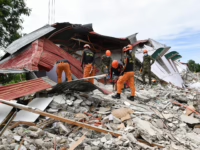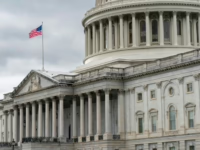His Royal Majesty, Prof. Epiphany Azinge, the Asagba of Asaba, has expressed deep disappointment over Nigeria’s continued dependence on external aid despite its vast natural and human resources, 65 years after gaining independence.
During a visit from Dr. Joachim Ajakaiye, the Director General and CEO of the Nigerian Institute of Trypanosomiasis Research (NITR), the monarch did not mince words, labeling Nigeria as a nation lacking pride due to its failure to independently tackle persistent health challenges.
The Asagba lamented that Nigeria seems trapped in a cycle of stagnation, questioning why an institution founded in 1947 still struggles to eliminate diseases like river blindness and sleeping sickness after nearly eight decades. He also highlighted malaria as a continuing threat that claims countless lives annually.
While acknowledging some progress made possible through foreign aid, he criticized the country’s inability to resolve fundamental health issues on its own. “Leadership demands action,” he stated emphatically, urging Dr. Ajakaiye to seize the moment and lead transformative change within his mandate.
He challenged the notion that success depends solely on international foundations such as the Bill & Melinda Gates Foundation, pointing out that Nigeria’s own resources far exceed the financial aid received. “Why must we depend on donors to solve our basic problems when we are endowed with abundant wealth and talent?” he questioned.
Reflecting on the decades-long fight against these diseases, the Asagba insisted that Nigeria should have moved beyond mere control to complete eradication by now. He contrasted this with developed nations like the United States and countries in Europe, which aggressively invest in research and confront health crises head-on.
Expressing optimism, he welcomed the emerging initiatives at Dennis Osadebay University in Asaba, hoping the institution would become a pivotal force in combating these diseases effectively and sustainably. “This is a call to action,” he concluded, “not just a title or position, but a commitment to leave a lasting impact for the nation.”
In response, Dr. Ajakaiye outlined NITR’s mission to develop innovative technologies and research strategies aimed at eradicating African Trypanosomiasis, onchocerciasis, and their vectors-the tsetse and black flies. He highlighted past successful interventions in Delta State’s three senatorial districts, achieved through partnerships with key stakeholders.
The DG expressed confidence that continued collaboration would enhance early disease detection, reduce healthcare expenses, and generate employment opportunities for rural communities in Delta and neighboring states.
He also announced a forthcoming partnership with the Delta State Ministry of Science and Technology to establish a Diagnostic Centre at Dennis Osadebay University, with NITR taking full responsibility for its construction, equipment, and staffing.
Headquartered in Kaduna, NITR operates zonal offices across Nigeria’s six geopolitical zones, with the South-South zonal office located in Asaba, reinforcing its commitment to regional disease control and research.
























